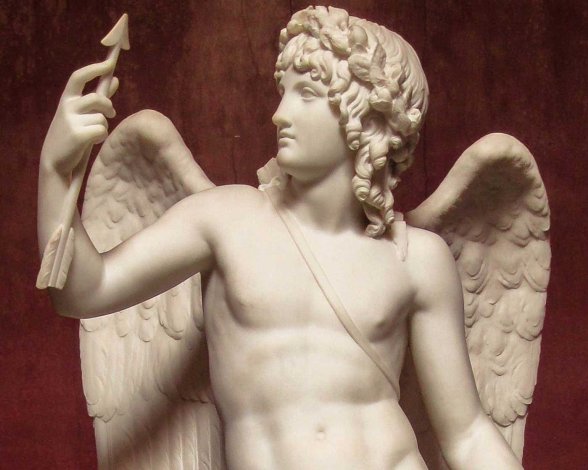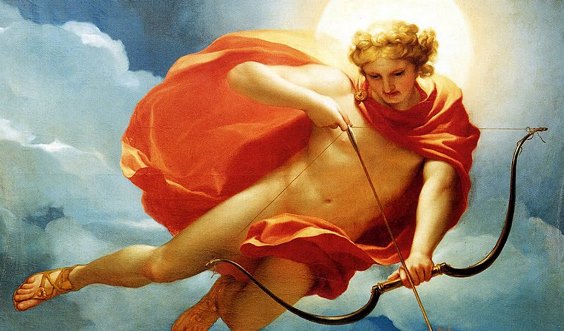Eros — Greek mythology

Eros and his Magic Arrows
Roman name: Cupid
Eros was the little son of Aphrodite, the goddess of love and beauty. Like his mother, Eros helped others to fall in love. Aphrodite had many ways to do this. Eros had only one. When Eros shot his little arrows into an unwary victim, that victim fell in love with the very next person they saw! His magical arrows worked on gods as well as mortals. You can imagine how much trouble that caused!
His arrows, however, did not work on himself. As he grew up, he had hoped he would fall in love and live happily ever after as did many of his victims. He tried many times to fall in love, but he could not. His mother could have helped him. She was very good at making people fall in love. But no one was good enough for her son, not in Aphrodite's opinion anyway.
Eros was very lonesome until one day things changed.

Parentage
There are numerous different versions of Eros’ parentage, and it seems that even Ancient Greek authors were aware of them, so some have even posited the existence of at least two different Eroses.
Eros as a Primordial Cosmic Force
The first of these is Hesiod’s Eros, a primordial being, “the most beautiful of the immortal gods,” one of the very first few deities that sprung into existence. In this story, Eros was the son of Chaos, and the brother of Gaea, Tartarus, Erebus, and Nyx. A universal cosmic force, he became Aphrodite’s companion soon after her birth, which he had previously overseen.
Eros Portrayal
In Greek art, Eros was portrayed either as a beautiful youth (in the earlier days) or as a mischievous boy (in Hellenic times and later).